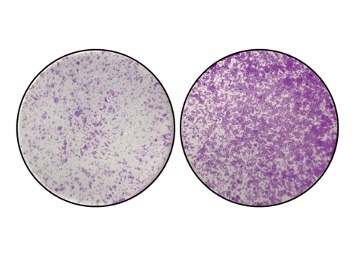The 1970s revealed the initial data indicating mutations in the genetic material of tumors, much before the first oncogene alterations were identified in human cancer in the early 1980s.

Effect of losing the TYW2 gene and the “Y” nucleotide in colon cancer. Image Credit: Josep Carreras Leukaemia Research Institute.
In 1975, the leading magazine Nature published the existence of a particular modification in the transformed cell—a piece was missing in an RNA that is responsible for transporting an amino acid to build proteins (that is, transfer RNA); this missing piece is the mysterious nucleotide “Y.”
Following that extraordinary discovery, there was ignorance and absolute silence for 45 years on the causes and implications of not having the right base in that RNA.
A research team of Dr Manel Esteller, Director of the Josep Carreras Leukaemia Research Institute, ICREA Research Professor, and Professor of Genetics from the University of Barcelona, has successfully solved this enigma.
The researchers explained that within cancer cells, the protein that produces the “Y” nucleotide is epigenetically disabled, resulting in small yet extremely aggressive tumors.
The study was recently published in the Proceedings of the National Academy of Sciences.
Since the original discovery in 1975, there has been much biochemical work to characterize the enzymes involved in the different steps that lead to the desired nucleotide ‘Y’, a hypermodified guanine, but without connecting this characterization with its defect in tumor biology. We have built the bridge between these two worlds by demonstrating that the epigenetic silencing of the TYW2 gene is the cause of the loss of the elusive nucleotide ‘Y’.”
Dr Manel Esteller, Director, Josep Carreras Leukaemia Research Institute
Dr Esteller continued, “Epigenetic blockade TYW2 gene occurs mainly in colon, stomach and uterine cancer. And it has undesirable consequences for healthy cells: the postman (RNA) that sends the signal to produce the bricks of our body (proteins) begins to accumulate errors and the cell takes on a different appearance, far from the normal epithelium, which we call mesenchymal and which it is associated with the appearance of metastasis.”
In this regard, when we study patients with colon cancer in early stages, the epigenetic defect of TYW2 and the loss of the nucleotide ‘Y’ is associated with those tumors that, although small in size, already lead to less survival of the person.”
Dr Manel Esteller, Director, Josep Carreras Leukaemia Research Institute
“We would like to explore now how to restore the activity of the TYW2 gene and restore the longed-for ‘Y’ piece in cancer in order to close the cycle of this story that began so brilliantly in 1975, at the dawn of modern molecular biology,” concluded Dr Esteller.
Source:
Journal reference:
Rosselló-Tortella, M., et al. (2020) Epigenetic loss of the transfer RNA-modifying enzyme TYW2 induces ribosome frameshifts in colon cancer. Proceedings of the National Academy of Sciences. doi.org/10.1073/pnas.2003358117.